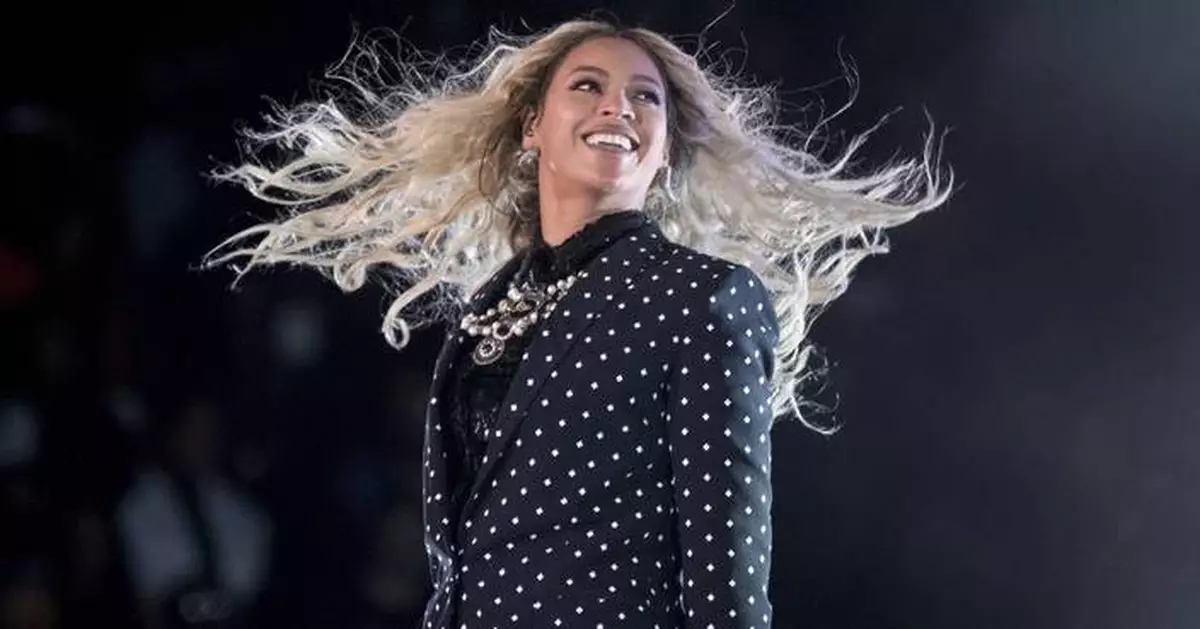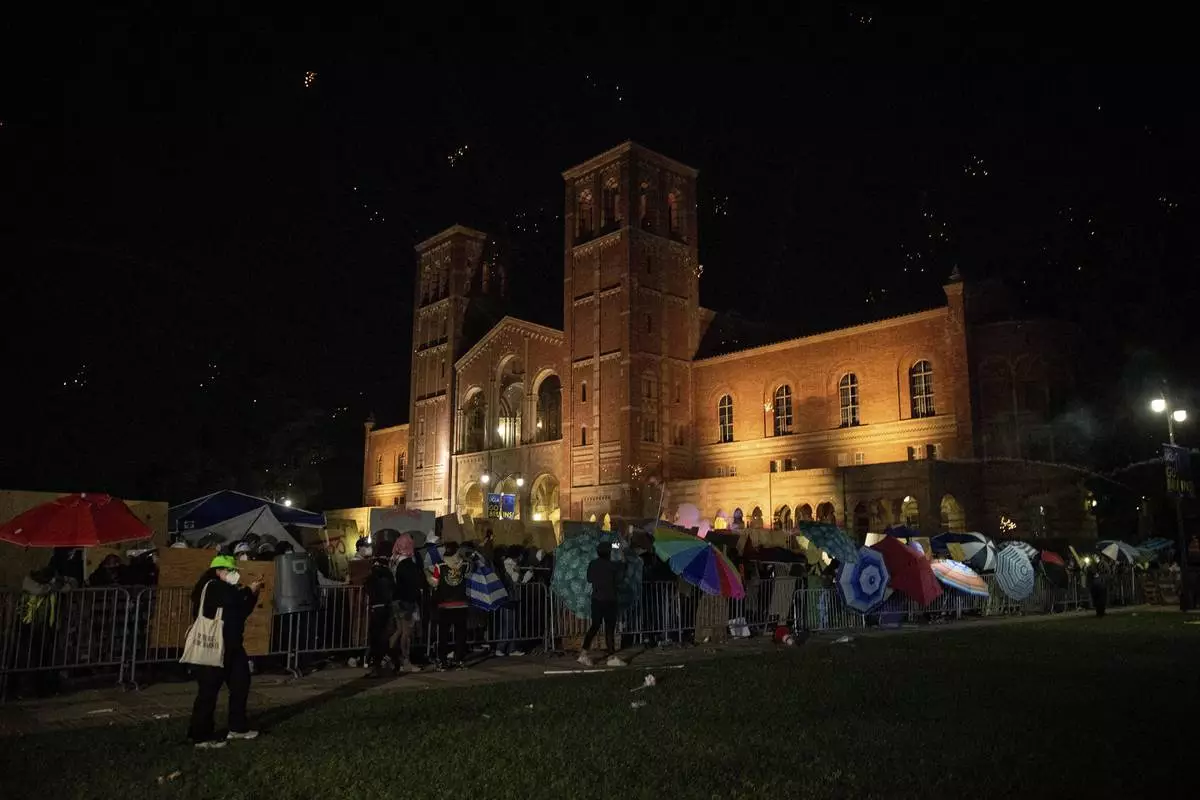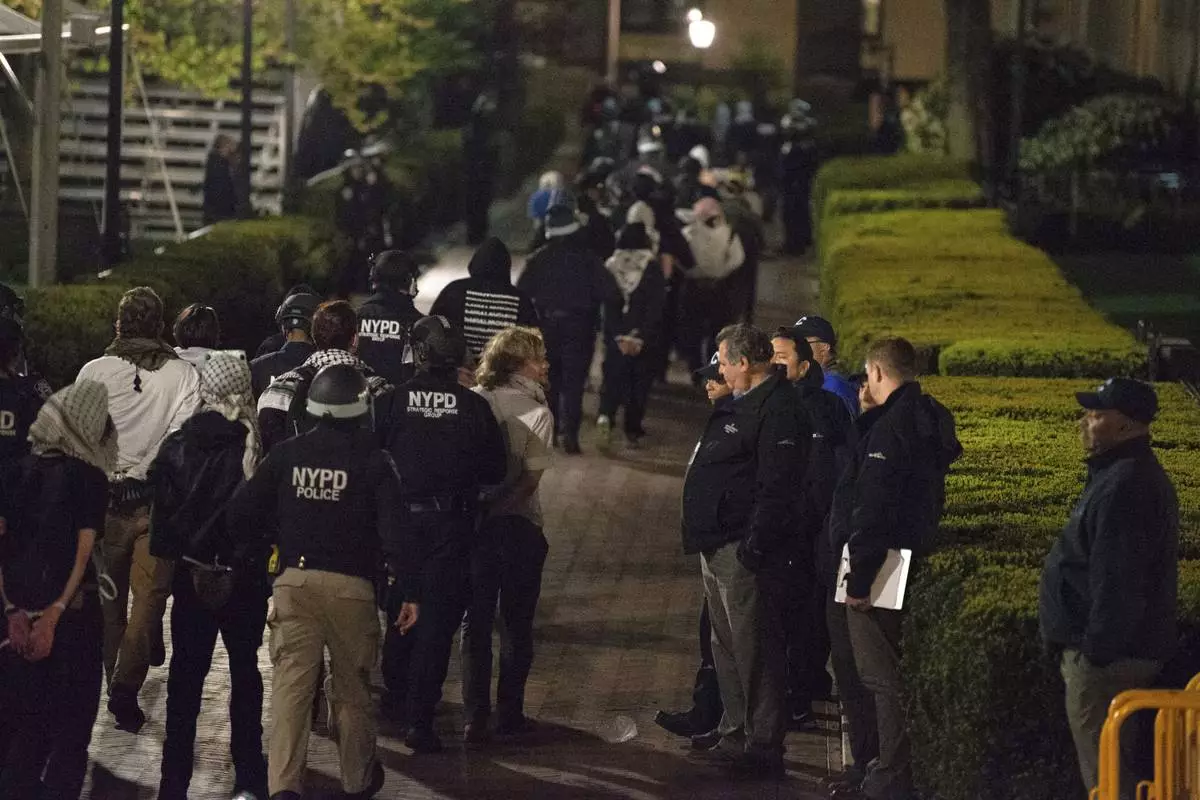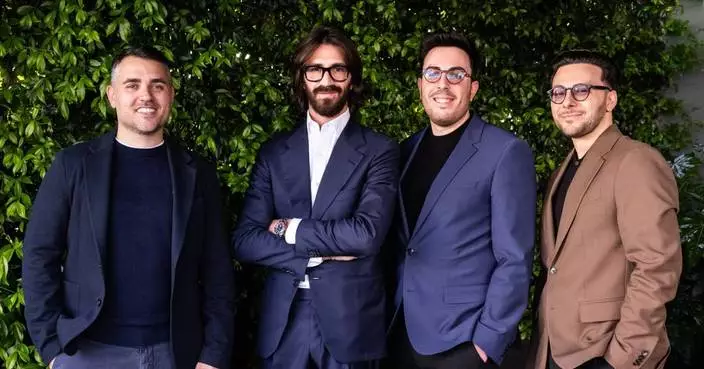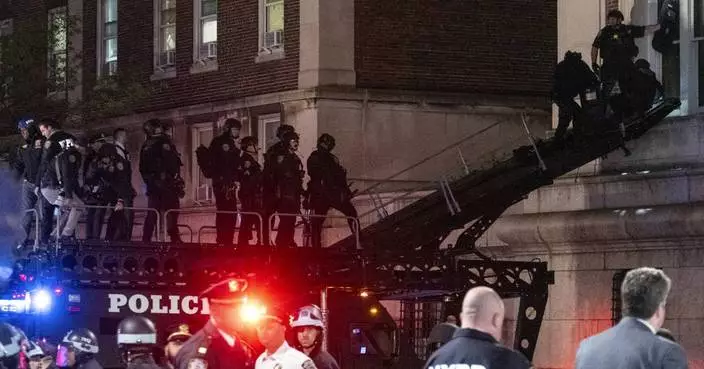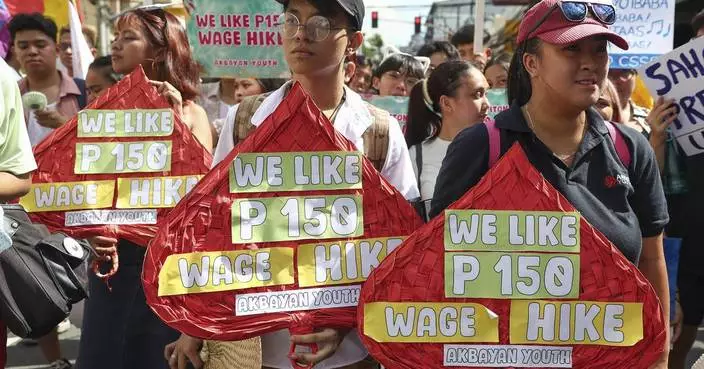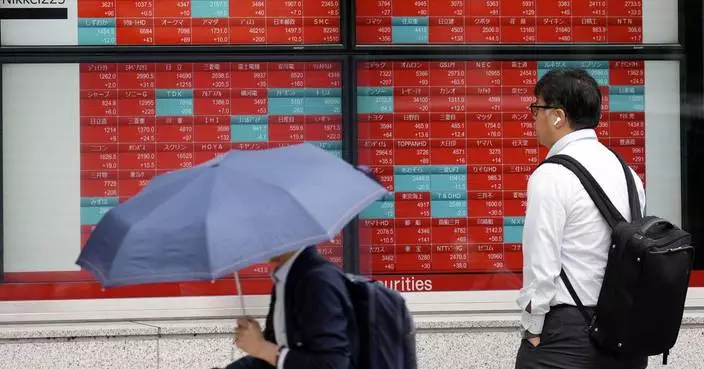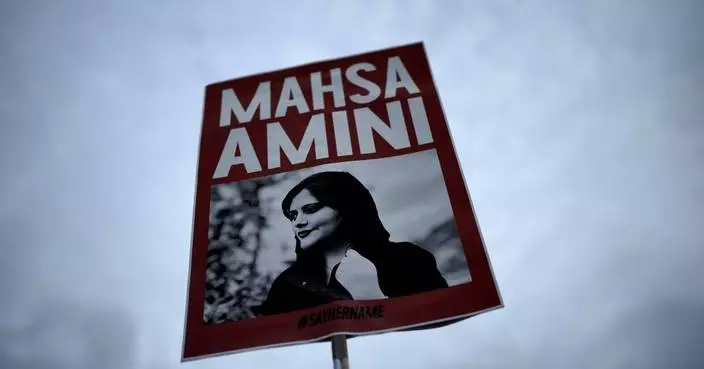NEW YORK (AP) — Dusty, worn boots. Horses lapping up water. Sweat dripping from the foreheads of every shade of Black skin as country classics blare through giant speakers. These moments are frequently recreated during Tayhlor Coleman’s family gatherings at their central Texas ranch. For her, Beyoncé's country album, “Act II: Cowboy Carter,” was the granting of an unlikely wish.
“There is something to be said about the biggest artist in the world coming home to the genre that... we all kind of love but never really felt welcome into — it’s really hard to put that to words,” said the 35-year-old native of Houston’s Third Ward, the same area Beyoncé lived in as a child. Loving artists like Miranda Lambert and Shania Twain, Coleman hoped this moment would come. “I was praying then that one day she would make a country album…Beyoncé is more country than a lot of people making country music today.”
Beyoncé's latest project is not only No. 1 on the Billboard 200 for the second consecutive week, but she became the first Black woman to top Billboard's country album chart.
“There’s nothing that that girl can’t do….that’s inspiring to me,” said country superstar Lainey Wilson, who took home the country album Grammy in February. “I’m excited to see the fans that didn’t know they liked country music find out that maybe they like it a little bit.”
Beyoncé's steamrolling into country music – and her motivation behind it — has reignited discussions about the genre's origins and its diversity. But with increased interest from Beyoncé’s fans at a fever pitch, is Nashville prepared and willing to welcome them in? And will these new listeners of color and others curious about the hoopla stay or will their interest in the genre wane?
“I will be honest with you: I think that it’s a Beyoncé thing. I don’t know that it’s a country music happening because that would mean the industry would have to do something…I think it’s one of those cultural moments for Black people, specifically Black women,” said country artist Rissi Palmer, host of the Apple Music radio show Color Me Country which has created a centralized community where fans of color can enjoy the genre.
“It’s really funny to me to see a lot of country radio programmers trying to take credit for what just happened with Beyoncé. That wasn’t country radio…that was her power, her money and…the acknowledgment of her brand. The fandom did that," Palmer said.
Tanner Davenport, co-director of Black Opry — and proud BeyHive member — worries the massive achievements of “Cowboy Carter” could have unintended consequences, such as country music executives not feeling an urgency to platform existing and future Black artists. Black Opry was founded by Holly G in April 2021, as she examined her relationship with the genre during the social justice movement sparked by the murder of George Floyd. The organization aims to amplify Black voices in country, Americana, blues and folk music.
“Once ‘Act II’ has ran its course and gone away, there are going to be programmers... looking back at this moment and saying, ’We’ve already done this. We’ve given a Black woman a No. 1,” said Davenport. “If they can really start to dial into the audience a bit more, I think they can start to see progress within this and capitalize on this moment because I think there’s a huge undermining of the Black dollar and how far it can go.”
Reyna Roberts’ parents filled their house with music. Roberts, a rising country artist featured on “Cowboy Carter” with vocal credits on “Blackbiird” and “Tyrant,” said some questioned her musical aspirations.
“People are always so surprised. But I’m like my parents played country, they played trap, they played rock, they played classical, they played blues...Anything that I’m creating is all truly authentic,” said Roberts, who hit a career breakthrough in 2020 after shout-outs from superstar Carrie Underwood and Mickey Guyton, who in 2021 became the first Black woman to co-host the Academy of Country Music Awards. ( Charley Pride, who died in 2020, was the first Black co-host of the CMA Awards in 1975.)
Roberts is part of a new generation of artists, like Shaboozey, Tanner Adell and Willie Jones, who are fusing country with other genres like hip-hop.
While Wilson, one of the biggest artists in the genre, hopes some Queen Bey fans will explore country, a significant percentage of Black listeners already exists. A 2021 Country Music Association self-commissioned study, “Country Music’s Multicultural Opportunity,” examining potential audience expansion opportunities, revealed that 26% of Black respondents said they listen weekly.
"I don’t think they have gotten to the point where they feel as safe to be at country shows… the broad listenership in country music is going to be reflected in the streaming world,” said Davenport. He says the Black Opry is strategizing ways to capitalize on Beyoncé's momentum so curious fans can find spaces “where they can exist and not feel threatened.”
Safety and feeling comfortable in a country music environment is often on the minds of Black country musicgoers. Davenport was in the audience during Beyoncé’s 2016 CMA performance with The Chicks which sparked a much-documented racist online backlash, and is widely believed to be the genesis for “Cowboy Carter" with the superstar expressing in an Instagram post, “I did not feel welcomed.”
During the performance, Davenport says a woman near him yelled, “’They need to get that Black b---- off stage,” adding, “I started to realize, OK, this is truly a space in which I don’t feel comfortable in, and I don’t feel safe in.”
That same CMA multicultural study found that 20% of concert attendees of color experienced racial profiling or harassment. The polling also included non-country music listeners, and up to 31% of that segment noted that they don’t listen because they “wouldn’t be safe/comfortable at live events.”
Monica Wisdom understands.
In the early ‘90s, the St. Louis native attended a concert by one of her favorite artists, Reba McEntire. Wisdom, 55, says McEntire’s performance was on fire, but the atmosphere and crowd were ice cold.
“They were very unwelcoming...You saw the eye rolls and you heard the comments and the whispers, like, ’What are you doing here?'" recalled Wisdom, the founder of Black Women Amplified, a women’s empowerment group. “I said if this is what country music is, I don’t want any parts of it. So, I stopped listening to it.”
And Wisdom hasn't attended a country music concert since.
While popular artists like Wilson, the legendary Dolly Parton, Maren Morris, Jason Isbell and more have publicly voiced the need for inclusion, their allyship can sometimes be overshadowed. In 2021, Morgan Wallen, then already a huge star, was caught on camera using the N-word as his “Dangerous: The Double Album” record sat at No. 1 on the Billboard 200 for three consecutive weeks. Although there were repercussions, many fans rallied around him boosting his popularity. Jason Aldean's “Try That in a Small Town” also experienced a surge last year as the music video swirled in controversy.
“That’s the problem that the industry has in trying to retain and foster a real Black country audience,” said Palmer, whose first meetings with major labels in the early 2000s were sight-unseen due to her team's concerns that her race might present an obstacle. In 2007, Palmer became the first Black woman in 20 years to reach Billboard’s Hot Country Songs chart with “Country Girl.” She remembers performing at shows with Confederate flags in the crowd but singing anyway as a form of resistance. Concerns from music labels included her hairstyle and even the ethnicity of her love interests in music videos.
Palmer says the perception of racism is a "hard connotation to overcome, and you have to do a lot of work. You have to do a lot of answering for that and possibly asking for forgiveness...I don’t know that the industry is prepared to do that.”
“I do think that there is this sense that country music is white music,” said Coleman, who didn’t always express her love for country music as a teen. “It was not cool to be country...for the longest time, especially growing up, I was trying to fit in with everybody else. ” It's a sentiment many Black fans have echoed, including Palmer.
The genre might not seem relatable to fans of color because they don’t see themselves. In the CMA multicultural study, respondents noted feeling that country music isn’t interested in attracting them and not seeing enough Black, Latino or Asian artists.
“It’s hard to be in a space if you don’t see a representation of yourself,” said the 26-year-old Roberts, whose song “Louisiana” was inspired by Beyoncé’s “Daddy Lessons.” “My mindset was even though I don’t see representation, I will make sure that there’s representation.”
In a frequently cited 2021 study published by Jada Watson, a University of Ottawa musicologist, data revealed artists of color received just 1.5% of country radio airplay between 2002-2020. During that period, with nearly 15,000 songs played within the format, only three of the 13 Black artists were women. No songs by Black women reached the top 20 on country radio charts.
“There’s so much unloving in the world of Black people, especially Black women, that you have to find the spots where you’re loved,” said Wisdom, who grew up loving Parton and Kenny Rogers and watching McEntire’s “Reba” TV sitcom. “I didn’t find that in country music.”
Fans and experts seem to agree that Beyoncé has created an education on Black country trailblazers like Linda Martell and Rhiannon Giddens, and is providing an immeasurable amount of attention toward existing artists.
“It’s really great for them…The rising tide lifts all boats,” said iconic singer Wynonna Judd, who mentors several established and rising Black female singers. “What I think of professionally is how this has to be a blessing to so many women in the business that are… wanting to be heard.”
Before “Cowboy Carter” officially announced featured musicians, searches, streams and social media impressions rose exponentially for many current Black country artists such as Roberts, Guyton, Adell, Tiera Kennedy, Brittney Spencer, Shaboozey and others due to media stories and curiosity. Since the album has dropped, the numbers have risen even more.
“The fact that Beyoncé has been able to create this conversation for more people to be included in this space and talked about, it’s been really cool,” said Shaboozey, who's featured on “Spaghettii” and “Sweet Honey Buckin.’” “To see her just kind of coming in here has been honestly beneficial to me and plenty of other artists.”
But Davenport, who noted the Black Opry will honor pioneering songwriter Alice Randall for the organization’s anniversary this month, says while country is more diverse, progress has been too incremental, and Nashville hasn’t made good on promises made following the social justice uprising.
“I don’t think things are going to change overnight... at this point now, it feels like a repeat of what happened in 2021 after George Floyd was murdered,” said Davenport, referring to the current backlash against diversity and inclusion efforts. "There’s been no progress. I mean, you can see it on the charts. You can see it on the (festival) lineups.” While fans say country music has a lot to fix, they realize they have to do their part.
“Fans, though, have to take a responsibility and support the artists,” said Wisdom, whose love for country music was rekindled after watching the Peabody-award winning series “High on the Hog: How African American Cuisine Transformed America,” which featured a Black cowboys episode. “We have to go to these shows, we have to buy their music."
The scope of Beyoncé’s country music impact might not be realized for years, but there’s an optimism that the curiosity about Black country artists will continue.
“I hope that when Beyoncé moves on to ‘Act III’ that some of the people are going to stay... There are women that we stand on the shoulders of, and I want to make sure that we acknowledge all of them,” said Palmer, whose Color Me Country Artist Grant fund provides micro grants to artists of color pursuing careers in country, Americana and roots music. “I’m glad everyone is excited about Beyoncé. I’m glad that she’s having the milestones that she’s having — all of that. Also, just remember there were people that were here before.”
Despite Beyoncé never explicitly saying so, many fans believe “Cowboy Carter” — as well as her previous album, the dance-themed “Renaissance” — are meant to reclaim genres whose foundations are rooted in Black culture. But with the passage of time, along with systemic inequalities, is reclamation even possible?
Associated Press journalist Leslie Ambriz in Los Angeles contributed reporting.
Follow Associated Press journalist Gary Gerard Hamilton at @GaryGHamilton on all his social media platforms.
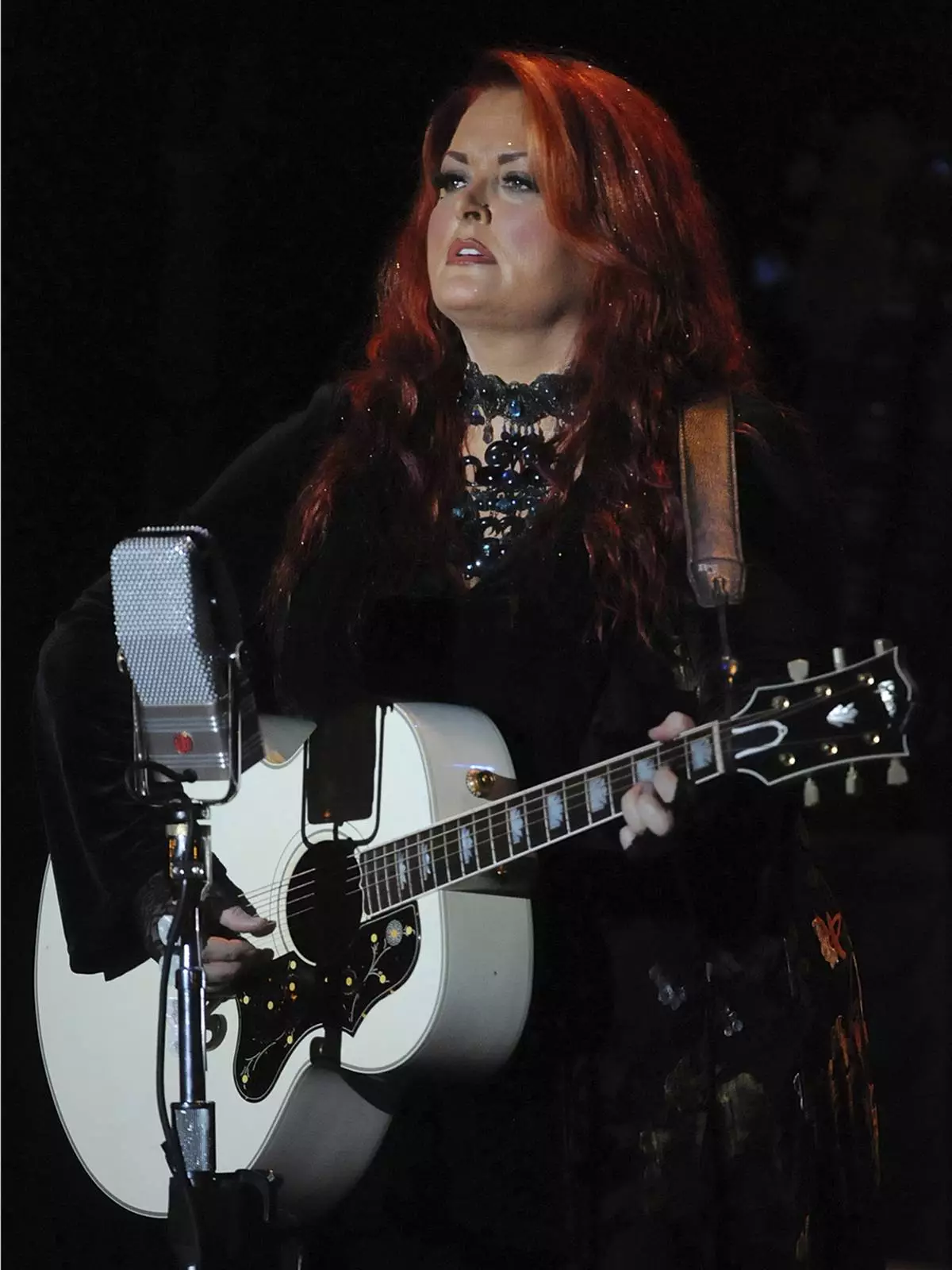
FILE - Wynonna Judd performs at the Paramount Arts Center in Ashland, Ky., Friday, Jan. 16, 2015. With the release of "Act II: Cowboy Carter,'' Beyoncé has reignited discussions about the genre’s origins and its diversity. (Kevin Goldy/The Daily Independent via AP)
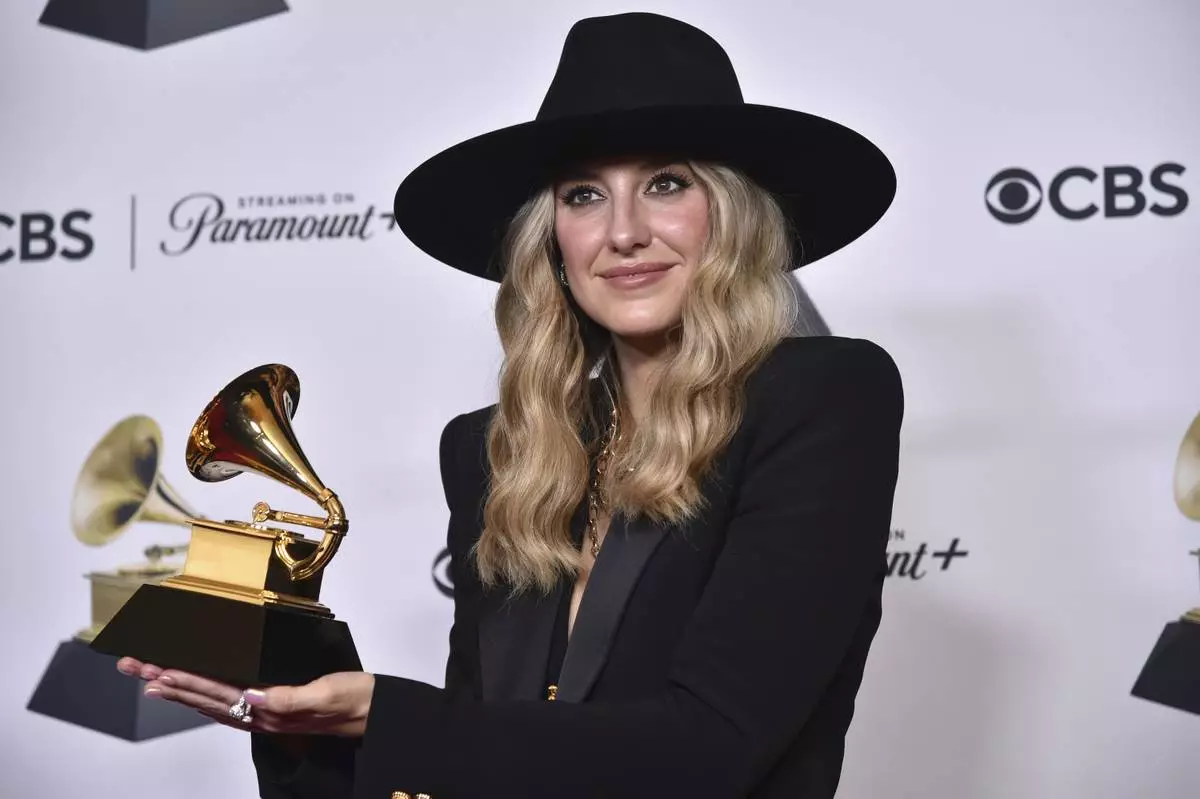
FILE - Lainey Wilson poses in the press room with the award for best country album for "Bell Bottom Country" during the 66th annual Grammy Awards on Sunday, Feb. 4, 2024, in Los Angeles. With the release of "Act II: Cowboy Carter,'' Beyoncé has reignited discussions about the genre’s origins and its diversity. (Photo by Richard Shotwell/Invision/AP, File)
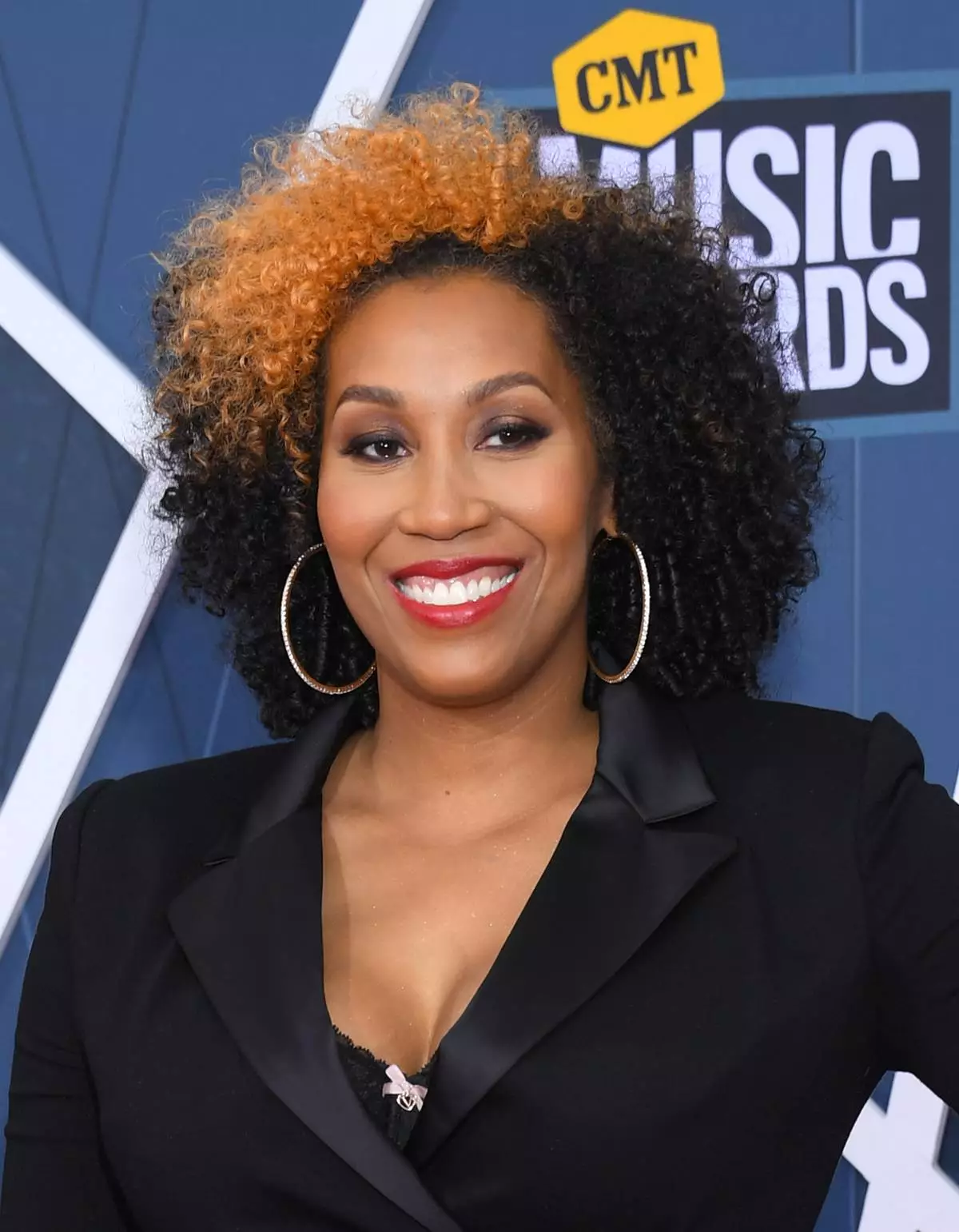
FILE - Rissi Palmer arrives at the CMT Music Awards, April 11, 2022, at the Municipal Auditorium in Nashville, Tenn. With the release of "Act II: Cowboy Carter,'' Beyoncé has reignited discussions about the genre’s origins and its diversity. (AP Photo/John Amis, File)
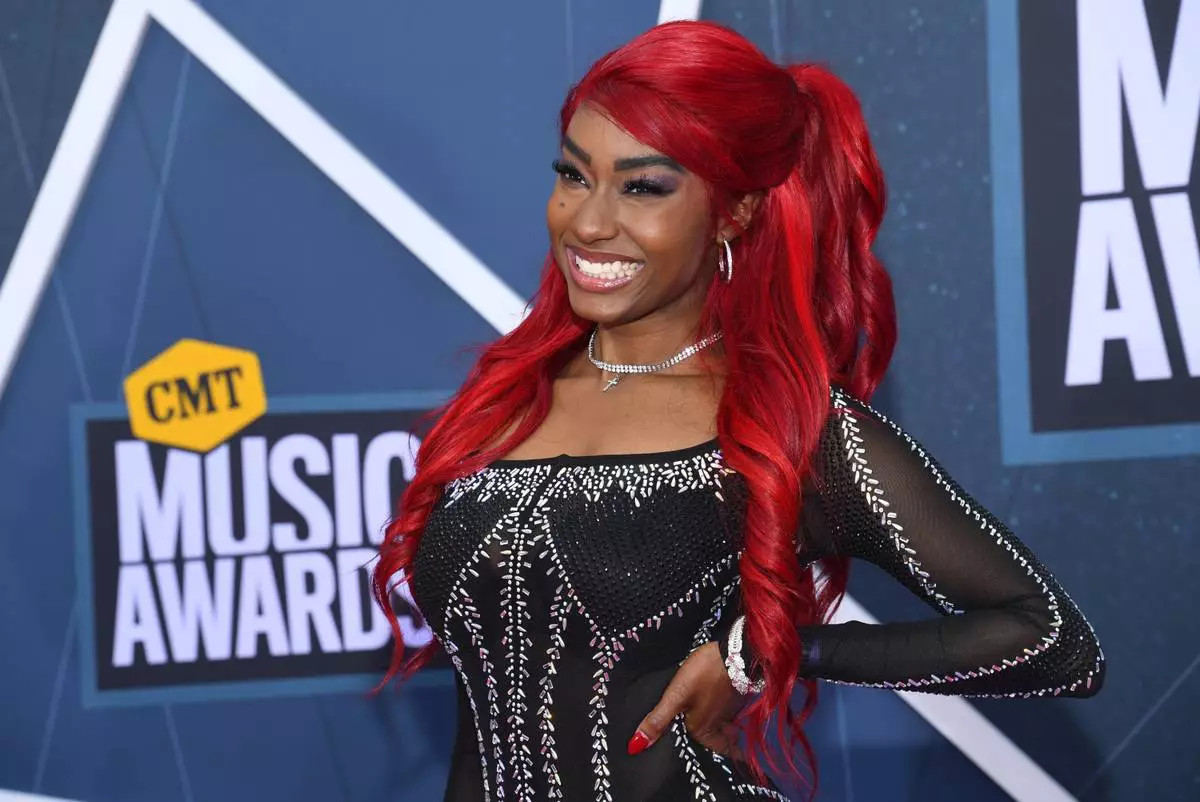
FILE - Reyna Roberts arrives at the CMT Music Awards, April 11, 2022, at the Municipal Auditorium in Nashville, Tenn. With the release of "Act II: Cowboy Carter,'' Beyoncé has reignited discussions about the genre’s origins and its diversity. (AP Photo/John Amis, File)
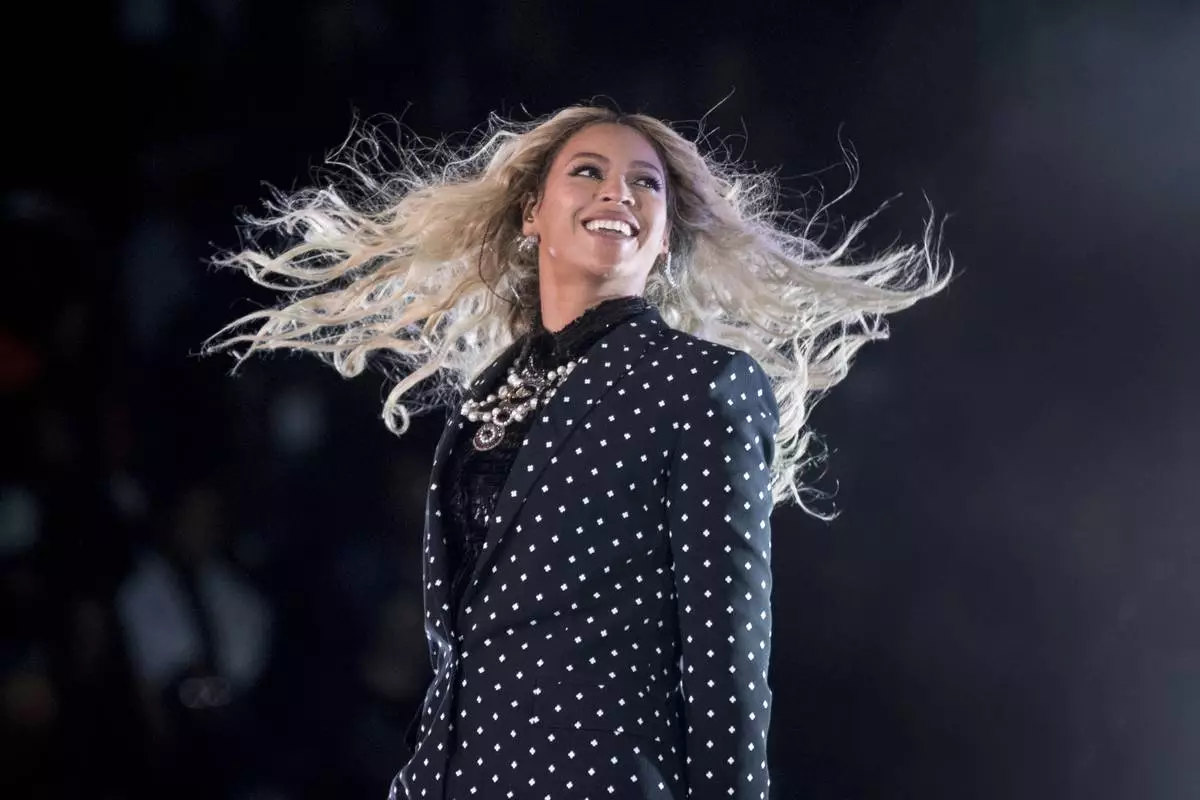
FILE - Beyoncé performs at the Wolstein Center, Nov. 4, 2016, in Cleveland, Ohio. With the release of "Act II: Cowboy Carter,'' Beyoncé has reignited discussions about the genre’s origins and its diversity. (AP Photo/Andrew Harnik, File)


